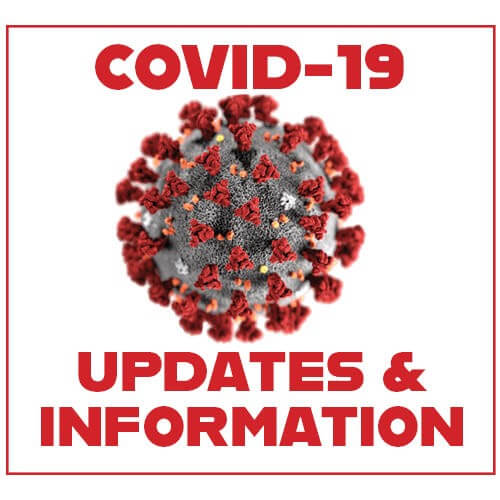Helpful coronavirus updates and procedures
 From Charlotte Health Officer Daniel Morgan:
From Charlotte Health Officer Daniel Morgan:
In the past few days, our office has received a number of questions and concerns regarding the Novel Coronavirus (COVID-19). At a time when misinformation, false links, and misleading headlines/half-truths spread rapidly, as the Town’s Health Officer, it was of great concern to me that you all received a comprehensive and unified response from the Town of Charlotte as to the current guidance from the State of Vermont.
Guidance for Vermonters
When to call?
- If you have questions about COVID-19: Dial 2-1-1
- If you are returning from China, Italy, Iran, South Korea or Japan: Call Health Department Epidemiology at (802) 863-7240
- If you are ill, have symptoms, or concerned about your health: Call your health care provider
People At Risk for Serious Illness from COVID-19
Some people are at higher risk of getting very sick from this illness, including older adults and people with chronic medical conditions like heart disease, diabetes or lung disease. According to the the Centers for Disease Control (CDC), these people should take extra precautions including:
- Stocking up on supplies
- Avoiding crowds
- Avoiding cruise travel and non-essential air travel
- Staying away from others who are sick
Everyday Preventive Measures
Person-to-person spread of the virus is thought to occur mainly via respiratory droplets produced when an infected person coughs or sneezes. Much is still unknown about how the virus spreads. Take these everyday preventive actions to help stop the spread of germs:
- Wash your hands often with soap and water for at least 20 seconds. If soap and water are not available, use an alcohol-based hand sanitizer.
- Avoid touching your eyes, nose, and mouth with unwashed hands.
- Avoid close contact with people who are sick.
- Stay home when you are sick.
- Cover your cough or sneeze with a tissue, then throw the tissue in the trash.
- Clean and disinfect frequently touched objects and surfaces.
Additional Resources
The Vermont Department of Health website contains guidance and answers to frequently asked questions, including:
- What does “monitoring” mean?
- Information for people under monitoring
- What does close contact mean?
- How can I protect myself?
- Should I wear a face mask when I go out in public?
- Guidance for travelers returning to Vermont from an affected area
- Where is it safe to travel internationally?
- I am returning from an affected area. What should I do?
- Who can get tested for COVID-19?
- What should people planning large gatherings in Vermont do?
- What is the turnaround time for testing?
- Where can I find translated materials?
- Can the Health Department provide documentation that I can go to work?
- Guidance for specific groups: businesses, communities, first responders, health care professionals, long-term care facilities, schools, child care programs and colleges.
The only websites that should be accessed for the most up to date and verified information are:
The Vermont Department of Health
The Centers for Disease Control website has updated guidance.
Vermonters can also dial 2-1-1 for information.
Vermont State Police issued a press release that read, in part: “Under the procedures currently in effect, Vermont State Police barracks are staffed, and members are continuing to respond to calls. In some cases, the agency will change the way it handles those calls. For instance, troopers will physically respond to major case investigations such as homicide, and to calls regarding crimes in progress, motor vehicle crashes with injuries, missing persons cases and domestic assault, as a few examples. As needed, troopers may take precautions such as social distancing, consulting with medical first responders, and using personal protective equipment.
In other cases, such as minor motor vehicles crashes, vandalisms and thefts, the state police may take reports from the public over the phone. State police members are making these response decisions in consultation with supervisors. The Vermont State Police encourages people who are victims of these types of crimes to report them over the phone rather than by walking in at a barracks. Additionally, state police members are evaluating the necessity of trainings and travel and will curtail or reschedule those events as appropriate.
The public should rest assured that our services remain available. We are continuing to function as a law-enforcement agency should under the unusual circumstances we all are facing,” said Col. Matthew T. Birmingham, director of the Vermont State Police. “The state police is taking prudent precautions to ensure we can continue to respond to calls for service, as Vermonters rightfully expect us to do.”
These procedures have been developed by Commissioner Schirling and Col. Birmingham in consultation with health experts. Additional steps, if necessary, will be determined by these same individuals, with the continual goal of ensuring the protection of the lives and safety of all Vermonters.”
